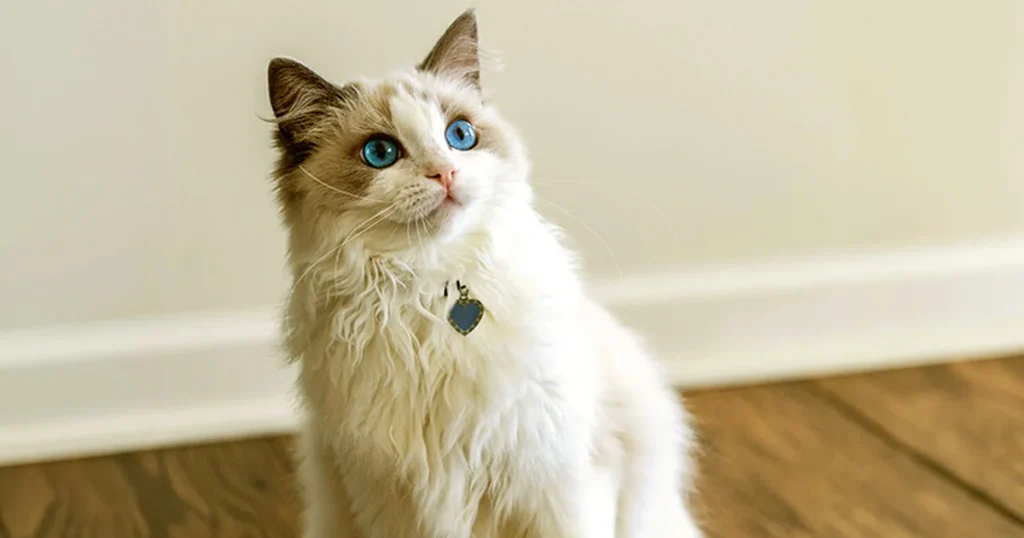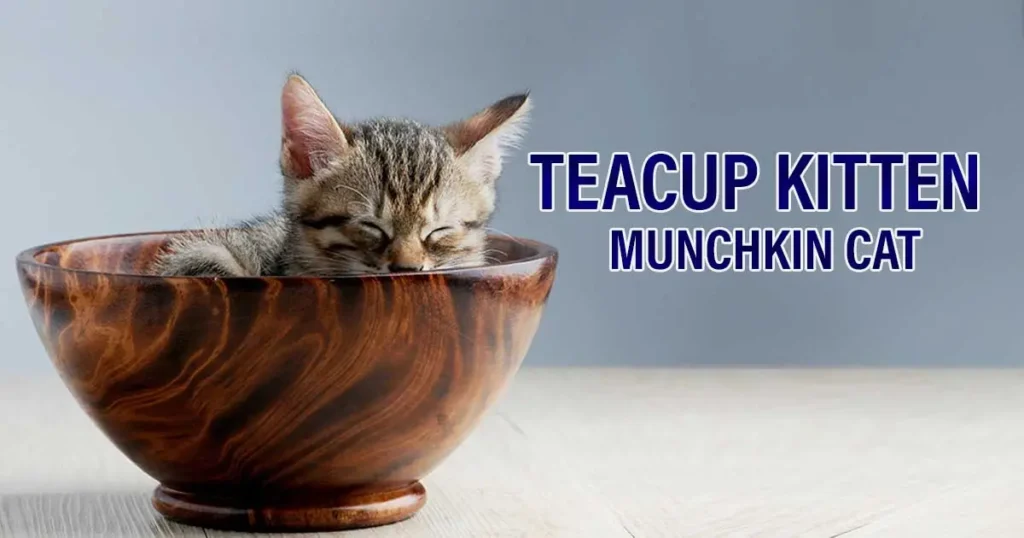Persian cats are adored worldwide for their calm and gentle personalities. They are affectionate companions that enjoy quiet environments and a predictable routine. Known for their majestic appearance and endearing behavior, Persian cats form strong bonds with their owners and love being the center of attention.
The personality of a Persian cat can vary based on factors such as gender, coat color, and age. Male Persian cats are typically playful and social, while females are often more independent and reserved. Their unique traits, combined with their elegant demeanor, make them a top choice for families, singles, and even multi-pet households.
However, owning a Persian cat comes with responsibilities. From addressing common behavior problems like restlessness at night to providing proper grooming and care, understanding their needs is key to a happy life together. This article will explore Persian cat personalities in-depth, uncovering their quirks, behaviors, and tips for nurturing their well-being.
Understanding Persian Cat Personality: Traits, Behaviors, and Care Tips
Persian cats are one of the most beloved feline breeds, known for their luxurious coats, calm demeanor, and charming personalities. This article will dive deep into everything you need to know about Persian cat personality traits, behaviors, and tips for a happy life with your furry companion.
Ready to discover everything about Persian cat personality traits, behaviors, and care tips? Dive into the article for a detailed guide that will help you understand and nurture your Persian cat’s unique qualities. Whether you’re a potential owner or a long-time fan of this elegant breed, there’s much to learn!
- Persian cats are calm, affectionate, and thrive in peaceful environments.
- Gender differences influence their personalities; males are playful, while females are more independent.
- Coat colors, like black, white, and tabby, may be linked to subtle personality traits.
- Common behavioral issues include shyness, nocturnal restlessness, and occasional aggression.
- Proper grooming, quality diet, and routine care are vital for a healthy Persian cat.
- They adapt well to families, singles, and multi-pet households.
What to Know About the Persian Cat
Here’s a comprehensive overview of what to know about Persian cats, covering their physical characteristics, personality traits, health considerations, and care needs:
Physical Characteristics
- Size: Medium to large; males typically weigh between 9 and 14 pounds (4 to 6.3 kg), while females weigh between 7 and 11 pounds (3.2 to 5 kg).
- Coat: Long-haired with a dense undercoat; comes in various colors such as white, black, blue, red, cream, chocolate, lilac.
- Face Structure: Known for their flat face with a short muzzle and round cheeks.
Personality Traits
- Temperament: Calm and gentle; they prefer quiet environments but enjoy being petted by those they trust.
- Social Behavior: Generally friendly with laid-back dogs and children if introduced properly; can be reserved around new people until they feel comfortable.
How do Persian cats interact with other pets in the household
Persian cats generally interact well with other pets in the household, provided that introductions are made carefully and gradually. Here’s how they typically get along with other cats and dogs:
Interaction with Other Cats
- Sociability: Persian cats are known to be friendly and sociable towards other cats. They tend to be non-aggressive but can be territorial at times.
- Age Factor: Kittens are more adaptable and likely to get along easily with new feline companions. Older Persians may need more time to adjust.
- Socialization: Proper socialization from a young age enhances their ability to coexist peacefully with other cats.
General Personality Traits of Persian Cats
They thrive in peaceful environments and prefer predictable routines, often choosing to lounge in cozy spots rather than engage in high-energy activities. While Persian cats are highly social with their families, they can be reserved around strangers, taking time to warm up to new people.
Their gentle demeanor and quiet nature make them well-suited for both individuals and families, especially those who value tranquility. With their intelligence and observant behavior, Persian cats are truly charming and endearing companions.
Key Personality Traits:
- Affectionate: Persian cats enjoy cuddling and love being close to their owners.
- Calm: They are not overly active, making them great for quiet households.
- Social but Reserved: While they are friendly, they may take time to warm up to strangers.
- Intelligent: Persian cats are observant and quick learners.
- Playful: They enjoy interactive play sessions but are not overly demanding.
In summary, Persian cats are perfect for owners looking for a loving, serene companion.
Gender-Based Personality Differences
The personality of Persian cats can vary slightly based on gender. Understanding these differences can help you choose the right fit for your home.The personality of Persian cats can vary subtly between males and females, offering unique traits to suit different preferences. Male Persian cats are typically more outgoing, playful, and attention-seeking, often forming strong, affectionate bonds with their families. They enjoy social interactions and are usually the life of the household.
In contrast, female Persian cats tend to be more independent and reserved, displaying their affection in a quieter, more selective manner. They are gentle and nurturing but may appreciate occasional alone time. These gender-based differences add to the charm of Persian cats, allowing potential owners to choose a personality that fits their lifestyle and home environment.
Male Persian Cats:
- More outgoing and playful.
- Tend to form strong bonds with family members.
- Slightly more attention-seeking than females.
Female Persian Cats:
- Often more independent.
- Show affection but may prefer occasional alone time.
- Gentle and nurturing by nature.
Male vs. Female Comparison: While both are equally affectionate, males are generally more social, while females are calm and self-reliant. Choose based on your household dynamics.
How Coat Colors May Affect Personality
Although coat color doesn’t scientifically dictate personality, many owners believe there are subtle differences.While scientific evidence doesn’t confirm a direct link between coat color and personality, many Persian cat owners believe certain traits are associated with specific colors. Black Persian cats are often described as confident and elegant, while blue and white Persians are considered calm, affectionate, and loving.
Grey Persian cats tend to be playful and curious, and tabby or calico Persians are often seen as energetic and adventurous. These anecdotal observations add a fun layer of personality exploration for Persian cat owners, though it’s essential to remember that individual temperament varies regardless of color.
| Coat Color | Perceived Personality Traits |
| Black | Confident, elegant, and slightly reserved. |
| Blue | Calm, affectionate, and friendly. |
| Grey | Playful, curious, and social. |
| White | Gentle, quiet, and loving. |
| Tabby/Calico/Chinchilla | Energetic, playful, and adventurous. |
Color-based traits are anecdotal but still a delightful way to understand your Persian cat’s quirks.
Common Behavioral Characteristics and Challenges
Persian cats have specific behaviors that set them apart. While most are endearing, some challenges may arise.Persian cats are known for their calm and predictable behavior, making them a favorite among those seeking a low-maintenance companion. They are quiet by nature, often communicating through soft purrs rather than loud meows. Persian cats thrive on routine and may become stressed by sudden changes in their environment.
Common behavioral challenges include occasional shyness around strangers, restlessness at night, and rare instances of aggression, often due to stress or health issues. They also form strong attachments to their families, sometimes following their owners around for attention. Addressing these behaviors with patience and care ensures a harmonious relationship with these serene cats.
Typical Behaviors:
- Quiet: Persian cats rarely meow loudly, preferring soft purring.
- Routine-Loving: They thrive on predictable daily schedules.
- Low Energy: They prefer lounging over climbing or running.
- Attachment: Persian cats may follow you around, craving your attention.
- Reserved Around Strangers: They often prefer their trusted circle.
Common Challenges:
- Behavior Problems at Night: They may become restless or playful.
- Shyness: Some Persian cats take time to adapt to new people or pets.
- Aggression (Rare): Can occur due to stress or health issues.
To summarize, understanding these traits and challenges can help you foster a happy and harmonious environment for your Persian cat.
Lifespan and Health Considerations
A Persian cat’s personality and behavior are influenced by their health and age. Caring for their health ensures a joyful and active companion.Persian cats typically have a lifespan of 12 to 16 years when cared for properly, making them a long-term and cherished companion. However, their health can significantly influence their behavior and overall quality of life.
Common health concerns in Persian cats include breathing issues due to their flat faces, eye problems, and obesity, all of which require regular veterinary attention. Proper grooming, a balanced diet, and a stress-free environment are vital to maintaining their health. As they age, Persian cats may become more sedentary and require adjustments in care to keep them comfortable and happy. With attentive care, Persian cats can lead a fulfilling and affectionate life by your side.
| Category | Details |
| Average Lifespan | 12–16 years indoors. |
| Common Health Issues | Breathing problems, eye issues, obesity. |
| Health’s Effect on Personality | Unhealthy cats may become irritable. |
As Persian cats age, their behavior may mellow further. Providing regular veterinary care ensures they stay happy and comfortable.
Tips to Enhance Your Persian Cat’s Personality
Caring for a Persian cat’s physical and emotional needs helps their personality shine.Enhancing your Persian cat’s personality involves meeting their physical, emotional, and social needs. Regular grooming not only keeps their luxurious coat healthy but also strengthens your bond. Providing a high-quality diet ensures they stay energetic and active, while interactive play sessions help stimulate their minds and prevent boredom.
A quiet, stress-free environment is crucial, as Persian cats thrive on routine and predictability. Additionally, regular veterinary visits are essential to address any health concerns that may affect their behavior. By nurturing their unique needs with love and care, you can help your Persian cat’s gentle and affectionate personality shine.
Actionable Tips:
- Regular Grooming: Keeps their coat healthy and prevents discomfort.
- Quality Diet: Supports overall health and energy levels.
- Interactive Play: Strengthens your bond and keeps them stimulated.
- Quiet Space: Ensure a peaceful environment to reduce stress.
- Routine Veterinary Visits: Addresses potential health problems early.
Investing in their well-being enriches your Persian cat’s already loving and serene personality.
FAQs
Are Persian cats affectionate?
Yes, they form strong bonds with their owners and love being petted.
Do male and female Persian cats have different personalities?
Males are more social, while females are calm and independent.
Are Persian cats aggressive?
Aggression is rare and often linked to health or environmental factors.
How do Persian cats behave with children?
They are gentle and tolerant, making them great for families with kids.
Do Persian cats get along with other pets?
Yes, but they may take time to adjust to new pets.
Conclusion
Persian cats are cherished for their loving and tranquil nature, making them excellent companions. By understanding their personality, addressing their needs, and providing proper care, you can ensure a happy and healthy life with your feline friend.



